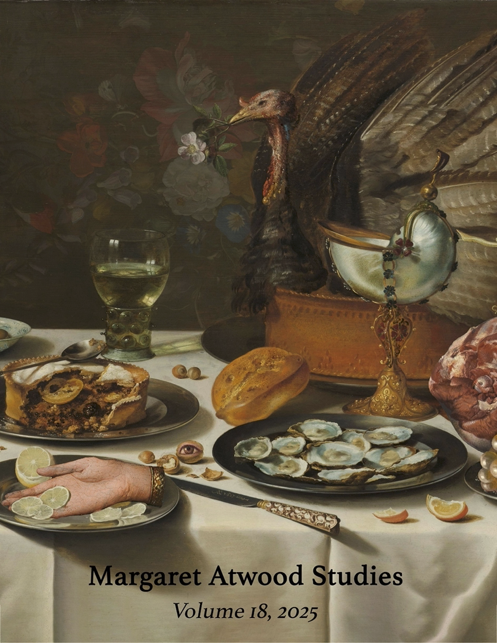“It’s Better Not to Form Attachments”:
Gilead, Neoliberalism and Positioning Care as Resistance in The Handmaid’s Tale
Abstract
Margaret Atwood’s (1985) novel, The Handmaid’s Tale, and its subsequent adaptations, presents a totalitarian regime as a cautionary example of the potential end point of a neoliberal world centred on shame and (re)productivity. Importantly, the text does so while signalling the power of compassion as a form of resistance. As such, this article interrogates how the depiction of Gilead offers a critique of emotional self-management within a contemporary neoliberal context. I explore Bruce Miller’s 2017 TV adaptation alongside Atwood’s novel, to examine how the enduring popularity of the show speaks to broader cultural conversations surrounding neoliberalism, pregnancy, and relationships in the USA. Acknowledging the distinct differences (and similarities) between a totalitarian regime within a piece of speculative fiction and the usual conceptualisation of neoliberalism, this article explores The Handmaid’s Tale and the cultural weight it holds, thus contributing to conversations on broader political themes across Atwood’s novels.
To date, much academic discussion on The Handmaid’s Tale has addressed how it promotes a clear feminist message, but I am interested here in the themes that relate specifically to neoliberalism. I focus on emotional self-management and how Gilead compares to the cultural background of neoliberalism in the USA (in both its 1980s and postmillennial iterations). This article shall discuss the depictions of the ceremony, the way Offred’s emotionality is positioned as a form of resistance, and the way relationships are managed within Gilead; in doing so, I signal how Atwood (and Miller) grapple with the ways the regime manipulates and promotes specific affects such as shame and love. I will then apply this primary analysis to the neoliberal cultural backdrop upon which the novel and series rest. Overall, this article argues that Atwood tackles the complexity of managing emotions in neoliberal culture by pitting Offred’s care and emotionality against the totalitarian Gilead.

